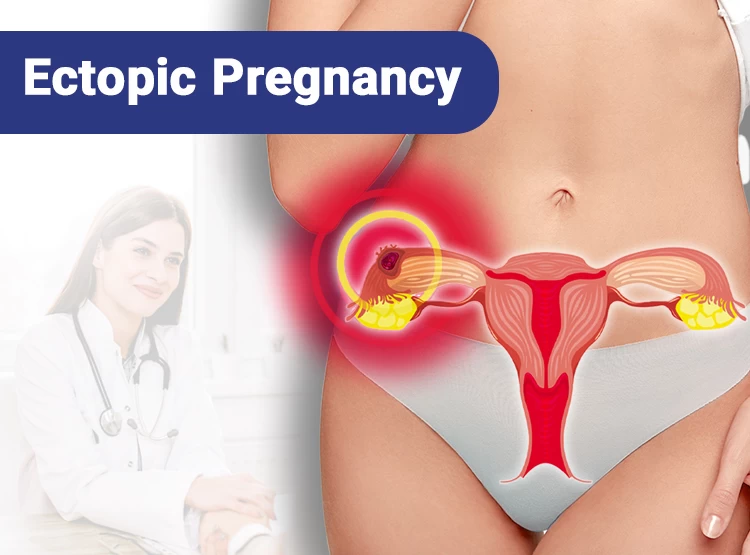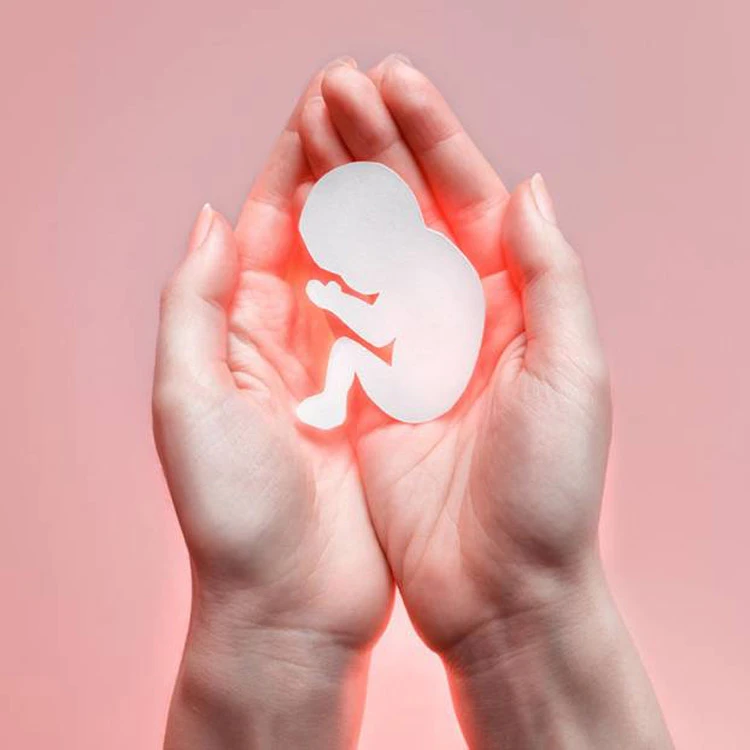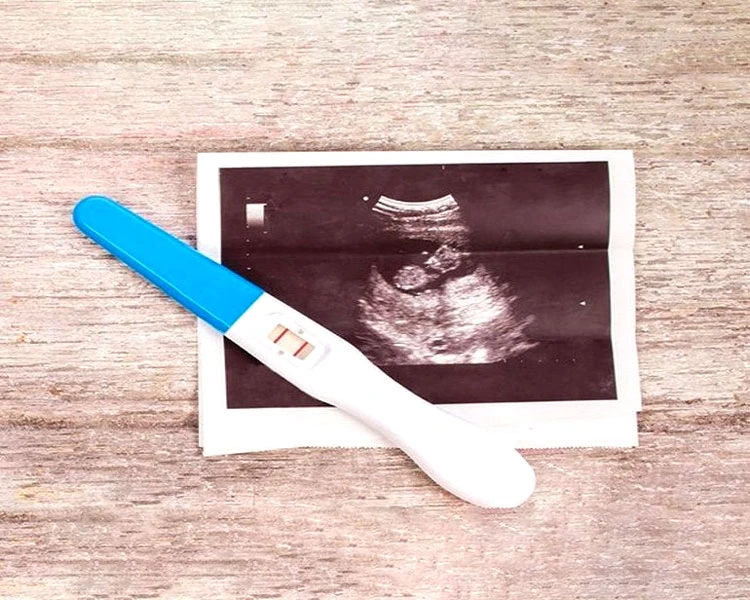Serious Miscarriage Complications: What You Should Never Ignore
Fertility Treatment
Miscarriage is a heartbreaking experience that affects millions of women worldwide each year. While many women can heal emotionally and physically after a miscarriage, some may experience complications that can prolong the healing process and increase the risk of future miscarriages.
In this article, we will explore the various complications that can arise after a miscarriage, including physical complications such as infection, hemorrhage, and incomplete miscarriage. We will also discuss the emotional toll that a miscarriage can take on women and their partners and the importance of seeking support and counseling to navigate the grieving process.

Is Miscarriage Dangerous for Mother?
Miscarriage can be a distressing and emotionally challenging experience for women. The majority of miscarriages occur in the first trimester and are often due to genetic abnormalities or other factors that prevent the embryo from developing normally.
While the process of miscarriage can be painful and may involve heavy bleeding and cramping, it typically does not pose a significant risk to the mother's overall health. However, in rare cases, complications from a miscarriage can lead to serious health concerns for the mother. For example, if the miscarriage is incomplete and tissue remains in the uterus, it can lead to infection or excessive bleeding, which may require medical intervention.
Additionally, certain underlying health conditions or risk factors, such as a history of recurrent pregnancy loss or certain medical conditions, may increase the risk of complications during or after a miscarriage. It is important for women who experience a miscarriage to seek medical attention to ensure their physical health is monitored and any necessary treatment is provided.
What Are the Common Risks and Complications that Can Occur After A miscarriage?
After a miscarriage, several common complications can occur, including:
Infection
Infection after a miscarriage can be a serious complication that requires prompt medical attention. Signs of infection after miscarriage may include:
- Fever;
- Chills;
- Abdominal pain or tenderness;
- Foul-smelling vaginal discharge;
- Heavy or prolonged bleeding;
- Painful urination;
- Nausea or vomiting.
Infections can occur if bacteria enter the uterus during or after a miscarriage, leading to conditions such as endometritis (inflammation of the uterine lining) or pelvic inflammatory disease (PID). In severe cases, untreated infections can lead to sepsis, a life-threatening condition.
If you suspect you may have an infection after a miscarriage, it is important to contact your doctor immediately. Treatment typically involves antibiotics to clear the infection and prevent complications. In some cases, hospitalization may be necessary for intravenous antibiotics and monitoring.
Preventing infection after a miscarriage involves following your doctor's post-miscarriage care instructions, including proper hygiene practices, avoiding tampons, and attending follow-up appointments to monitor your recovery.
Excessive Bleeding
Excessive bleeding after a miscarriage, also known as heavy or prolonged bleeding, can be a concerning symptom that may require medical attention. While some bleeding is normal during and after a miscarriage, especially in the days immediately following the loss of the pregnancy, excessive bleeding can indicate complications that need to be addressed by a doctor.
Signs of excessive bleeding may include soaking through more than one pad per hour, passing large blood clots, feeling lightheaded or dizzy, experiencing persistent or severe abdominal pain, or having a fever. These symptoms could indicate complications such as an incomplete miscarriage, infection, or other issues that require medical intervention.
Your doctor can assess your condition, determine the cause of the excessive bleeding, and recommend appropriate treatment. This may involve monitoring your symptoms, performing additional tests or procedures, providing medication to help control bleeding or prevent infection, or, in some cases, performing a surgical procedure to address the issue.
Incomplete Miscarriage
An incomplete miscarriage occurs when not all of the pregnancy tissue is expelled from the uterus during a miscarriage. Incomplete miscarriage complications can include ongoing bleeding, cramping, pelvic pain, and infection.
Incomplete miscarriages can be diagnosed through symptoms such as persistent bleeding, cramping, and passing of tissue, as well as through ultrasound or other imaging tests.
Treatment for an incomplete miscarriage may involve monitoring your symptoms, prescribing medication to help your body expel the remaining tissue, or, in some cases, performing a procedure called a dilation and curettage (D&C) to remove the remaining pregnancy tissue from the uterus.
Asherman Syndrome
Asherman syndrome, also known as intrauterine adhesions or intrauterine synechiae, is a condition characterized by the formation of scar tissue inside the uterus, typically as a result of trauma or injury to the uterine lining. While Asherman's syndrome can occur for various reasons, it is more commonly associated with procedures such as dilation and curettage (D&C) that are used to remove pregnancy tissue from the uterus.
After a miscarriage, mainly if a D&C was performed, there is a risk of developing Asherman's syndrome due to the potential damage to the uterine lining during the procedure. The scar tissue that forms in the uterus can lead to a variety of symptoms, including changes in menstrual flow, infertility, recurrent miscarriages, and pelvic pain.
Diagnosis of Asherman syndrome typically involves a combination of medical history, physical examination, imaging tests (such as hysteroscopy), and possibly other procedures to evaluate the extent of scarring in the uterus.
Treatment for Asherman's syndrome may involve hysteroscopic surgery to remove the scar tissue and restore the normal uterine cavity. In some cases, hormone therapy may also be recommended to promote healing and prevent the recurrence of adhesions.
Hormonal Imbalance
Hormonal imbalances are common after a miscarriage, as the body goes through significant changes during and after pregnancy. Some of the hormonal changes that can occur following a miscarriage include a decrease in pregnancy hormones like human chorionic gonadotropin (HCG) and progesterone.
After a miscarriage, levels of these hormones drop rapidly, which can affect the body's hormonal balance. The loss of pregnancy can also disrupt the normal production and balance of estrogen and progesterone, which are essential for maintaining a healthy menstrual cycle and pregnancy.
Additionally, some women may experience changes in thyroid function after a miscarriage, leading to symptoms such as fatigue, weight changes, and mood swings. The emotional stress of a miscarriage may trigger the release of stress hormones like cortisol, further disrupting hormonal balance and affecting overall well-being. Hormonal imbalances can cause irregularities in the menstrual cycle, such as delayed or absent periods, heavy or light bleeding, or changes in cycle length.
Moreover, hormonal fluctuations after a miscarriage can contribute to emotional symptoms like mood swings, anxiety, and depression.
Depression After a Miscarriage
Experiencing depression after a miscarriage is a common and normal response to the loss of a pregnancy. Acknowledging and validating your feelings and seeking support from loved ones, a mental health professional, or a support group is important.
Here are some tips for coping with depression after a miscarriage:
- Allow yourself to grieve;
- Reach out to loved ones, friends, or a therapist who can provide emotional support and understanding during this difficult time;
- Practice self-care activities such as exercise, healthy eating, getting enough rest, and engaging in activities that bring you joy;
- Be patient with yourself, as healing from a miscarriage takes time;
- Consider seeking help from a mental health professional who can provide therapy or medication to help manage your symptoms (If your depression is severe or persistent).

Can a Miscarriage Lead to Infertility Issues or Complications in Future Pregnancies?
Experiencing a miscarriage can potentially lead to infertility issues or complications in future pregnancies, especially in cases of recurrent pregnancy loss. Factors such as underlying health conditions, uterine abnormalities, hormonal imbalances, infections, and emotional impact can contribute to difficulties in conceiving or carrying a pregnancy to term after a miscarriage. It is important for individuals who have experienced a miscarriage and are concerned about their fertility to seek guidance from a doctor for a thorough evaluation and appropriate treatment options to optimize their chances of a successful pregnancy in the future.
Can I Prevent Complications After a Miscarriage?
While there is no way to guarantee that complications will not occur after a miscarriage, there are steps you can take to reduce the risk and promote your overall health and well-being.
Some tips to help prevent complications after a miscarriage include:
- Follow your doctor's recommendations: Your doctor will guide you on how to care for yourself after a miscarriage. It's important to follow their instructions and attend any follow-up appointments;
- Rest and take care of yourself: Allow time to rest and recover physically and emotionally. Make sure to eat nutritious foods, stay hydrated, and get plenty of sleep;
- Avoid strenuous activities: Avoid heavy lifting, vigorous exercise, or other strenuous activities that could strain your body and slow down the healing process;
- Monitor for signs of infection: Keep an eye out for symptoms of infection, such as fever, chills, abdominal pain, or abnormal vaginal discharge. Contact your doctor if you experience any of these symptoms.
- Seek emotional support: Miscarriage can be a difficult and emotional experience. It's important to seek support from loved ones, a therapist, or a support group to help you cope with your feelings and emotions;
- Take care of your mental health: Be gentle with yourself and allow yourself time to grieve. If you are struggling with feelings of sadness, anxiety, or depression, consider seeking professional help from a therapist or counselor.

What Are the Miscarriage Causes?
Miscarriage can be caused by a variety of factors, including:
- Chromosomal abnormalities: Most miscarriages are caused by chromosomal abnormalities in the fetus, which can prevent it from developing normally;
- Advanced maternal age: Advanced maternal age (typically over 35) is associated with a higher risk of miscarriage due to an increased likelihood of chromosomal abnormalities in the eggs;
- Hormonal imbalances: Imbalances in hormones such as progesterone and estrogen can affect the development of the pregnancy and increase the risk of miscarriage;
- Infections: Infections such as bacterial vaginosis, urinary tract infections, or sexually transmitted infections can increase the risk of miscarriage;
- Medical conditions: Conditions such as diabetes, thyroid disorders, autoimmune diseases, and polycystic ovary syndrome (PCOS) can increase the risk of miscarriage;
- Lifestyle factors: Factors such as smoking, excessive alcohol consumption, drug use, obesity, and certain medications can increase the risk of miscarriage;
- Uterine abnormalities: Structural abnormalities in the uterus, such as fibroids or a septum, can increase the risk of miscarriage;
- Trauma or injury: Physical trauma or injury to the abdomen can increase the risk of miscarriage.
Infertility Treatment in Iran
Infertility Treatment Methods in Iran has gained recognition and popularity due to several factors. Firstly, Iran has made significant medical technology and infrastructure advancements, enabling the country to offer state-of-the-art fertility treatments. This includes access to advanced assisted reproductive technologies (ART) such as in vitro fertilization (IVF), intracytoplasmic sperm injection (ICSI), and egg donation.
Secondly, the cost of infertility treatment is relatively affordable in Iran compared to many Western countries, making it a more accessible option for couples seeking fertility assistance. The lower cost of treatment, coupled with the high success rates of Iranian fertility clinics, has attracted international patients seeking quality care at a reasonable price.
Moreover, Iran has a well-established medical tourism industry, with many fertility clinics catering to international patients seeking infertility treatment. These clinics often have multilingual staff, streamlined processes for international patients, and high standards of care that adhere to international guidelines and protocols.
Additionally, Iran boasts a pool of highly skilled and experienced fertility specialists who are trained in the latest techniques and procedures in reproductive medicine. This expertise, combined with a culture that values family and parenthood, has contributed to the success and reputation of Iranian fertility clinics in treating infertility.
Final Word
It is important for individuals who have experienced a miscarriage to be aware of the potential complications that can arise in the aftermath. These complications can include physical issues such as infection or excessive bleeding, as well as emotional and psychological challenges such as depression and anxiety. Seeking medical care and emotional support is crucial in navigating the difficult aftermath of a miscarriage, and talking openly about these experiences can help to break the stigma surrounding pregnancy loss. By understanding and addressing potential complications, individuals can better care for themselves and move towards healing after a miscarriage.
FAQs on Complications After a Miscarriage
Are there any preventive measures to reduce the risk of complications during or after a miscarriage?
Seeking regular prenatal care, avoiding smoking and excessive alcohol consumption, and maintaining a healthy lifestyle can help reduce the risk of complications during or after a miscarriage. It is important to follow the advice of healthcare professionals and seek emotional support if needed. Adequate rest, proper nutrition, and staying hydrated may also help promote healing and recovery.
How soon after a miscarriage should individuals seek medical attention if they suspect complications?
Individuals should seek medical attention immediately if they experience heavy bleeding, severe pain, fever, chills, or signs of infection following a miscarriage. It is important to seek prompt medical care in suspected complications to ensure proper treatment and prevent further health risks.
How soon after a miscarriage can complications occur?
Complications can occur immediately after a miscarriage or in the days or weeks following the miscarriage.
What should I do if I suspect I have a complication after a miscarriage?
If you suspect you have a complication after a miscarriage, it is important to contact your healthcare provider immediately for evaluation and treatment.
Are there any long-term complications or health effects associated with a miscarriage?
A miscarriage does not typically have long-term health effects or complications. However, some women may experience emotional distress, such as anxiety or depression, following a miscarriage. In rare cases, there may be physical complications such as infection or excessive bleeding that require medical attention.
How long does it take for your body to go back to normal after miscarriage?
The time it takes for a woman's body to go back to normal after a miscarriage can vary depending on factors such as the stage of pregnancy at which the miscarriage occurred, any medical interventions that were needed, and the individual's overall health. In general, most women can expect their menstrual cycle to return to normal within 4-6 weeks after a miscarriage. However, it may take longer for hormone levels to return to baseline and for emotional healing to occur.
Can a miscarriage lead to a UTI?
Yes, urinary tract infections can occur after a miscarriage, especially if there’s retained tissue or prolonged bleeding. Symptoms include burning during urination, frequent urges, and lower abdominal pain. Early treatment with antibiotics prevents complications.
When should bleeding after miscarriage be a concern?
Light spotting is common, but heavy or prolonged bleeding, passing large clots, or bleeding accompanied by fever requires immediate medical attention. These can signal infection or incomplete miscarriage.
How can the uterus heal after a miscarriage?
The uterus usually heals naturally over a few weeks. Rest, proper hydration, iron-rich foods, and following doctor’s advice are key. In some cases, a minor procedure may be needed to remove leftover tissue.
Why are periods irregular after a miscarriage?
Hormonal fluctuations post-miscarriage can delay or alter menstrual cycles. Stress, thyroid issues, or incomplete healing may also contribute. Most women see normal cycles return within a few months.
What causes heavy bleeding after miscarriage?
Heavy bleeding may happen if tissue remains in the uterus or due to hormonal imbalances. Infection can also worsen bleeding. Persistent or worsening flow should be evaluated by a healthcare provider.









No reviews
Your comment